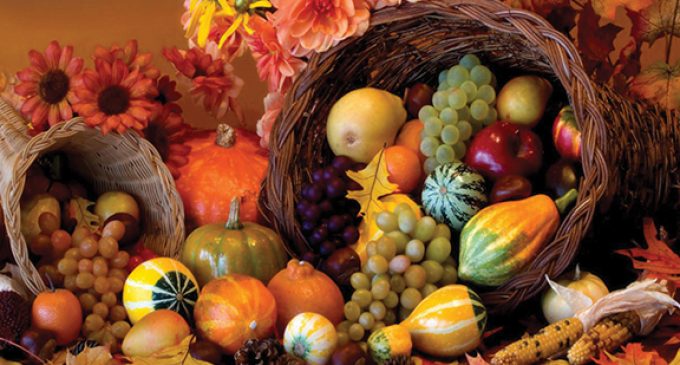Commentary: The lesser known hero of the first Thanksgiving

By David Winship
Today we commemorate a Thanksgiving feast that occurred in 1621 in what we now call Plymouth, Massachusetts. At that time, it was the site of the village of Patuxet, in the Wampanoug Nation. We all know the familiar story of how the Pilgrims, who were of the Puritan faith in England, sailed across the Atlantic Ocean, searching for a new home to settle.
But there is more to that story.
When the Puritans landed at Plymouth Rock, they were not the first English or Europeans that the Wampanoag natives had seen. The Europeans had been sailing along the coast for over a hundred years, fishing and exploring.
As the story of the “first Thanksgiving” has been idealized for 400 years, a crucial part of the story has not been given the importance that it deserves. That is the story of the Native American whose name was Tisquantum, who we have come to know as Squanto. We know the story of how Squanto helped the Pilgrims by showing them how to plant corn and fertilize their crops with the fish they caught.
However, his story is much more than that.
Squanto was probably born about 1580, so when the Pilgrims arrived, he was about 40 years old. The English Puritans were not the first English that he had met. Squanto first encountered the English in about 1605, when he was captured by a trading party under the command of Captain Weymouth, who took Squanto and three other natives back to England. Squanto stayed in London for some time and learned the English language during his time there. He eventually returned to America, however in 1614, he was captured again, this time by a captain of a ship of the expedition of John Smith. Captain Smith explored the northern coast and he left one of his captains to gather fish and return to England. However, this Captain Hunt decided to capture native men and sell them into slavery in Spain. When Captain Hunt got to Spain, his plans were foiled by Catholic priests, who enforced a Pope’s decree that all people had rights and could not be slaves. The priests sent Squanto “home,” but since he spoke English, they sent him to England instead of America. In 1616 he sailed back across the ocean to Newfoundland, north of his home village.
About this time, a French trading ship wrecked off the coast. The native tribes were hostile to Europeans after the kidnapping of their men and the crew of this wrecked ship was either killed or captured. When the captured crew was brought ashore, they brought with them diseases to which the natives had no immunity.
Deaths swept through the tribes all along the coast, including Patuxet, Squanto’s home village.
By 1619, Squanto had been back and forth across the Atlantic Ocean several times and had spent more of his adult life in Europe than in his homeland. In the spring of 1619, Squanto returned to help start a settlement and to act as translator for the expedition to establish trading with the natives. When the expedition arrived at Squanto’s home village, it was empty. The plague that had swept through the coastal settlements had wiped out nearly all of the native tribes of the region.
Squanto eventually found the remains of the Wompanoag tribe and stayed with this and other tribes along the coast. During this time, the Pilgrim Puritans had sailed into Plymouth Bay and were beginning to build a settlement at the same place as Squanto’s home village, which was decimated and abandoned. Because Squanto spoke good English, he became a translator and guide to help the new settlers.
From records the Pilgrims kept, we know that Squanto helped the settlers learn to plant and harvest, to hunt and fish, and that the harvest was good. So at harvest time in the autumn of 1621, 400 years ago, the Pilgrim Puritans hosted a great feast and invited the Wompanoag to join with them and 90 of the natives joined 53 Europeans, including men, women and 25 children, in the first Thanksgiving. There was fish, fowl and venison, along with crops that were harvested, served at this Thanksgiving and it lasted three days.
We can remember Squanto for his service to both the tribes of his native land and to the new English settlers. We can recognize that he had a well-traveled life that led to his being such a valuable and important person in our history.
As we recognize this 400th anniversary of Thanksgiving, let’s remember both those who came from England and those Native Americans who welcomed them to these shores, as we continue to give thanks for all that we have.
David Bonner Winship is a Bristol, Tennessee native, a retired educator and Appalachian storyteller.















